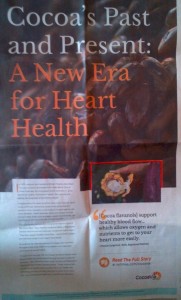Two rare industry-funded studies with results that must have disappointed the funders
Consumption of Honey, Sucrose, and High-Fructose Corn Syrup Produces Similar Metabolic Effects in Glucose-Tolerant and -Intolerant Individuals. Susan K Raatz, LuAnn K Johnson, and Matthew J Picklo. J. Nutr. 2015; 145:2265-2272 doi:10.3945/jn.115.218016
- Conclusions: Daily intake of 50 g carbohydrate from honey, sucrose, or HFCS55 for 14 d resulted in similar effects on measures of glycemia, lipid metabolism, and inflammation. All 3 increased TG [triglyceride] concentrations in both GT [glucose tolerant] and IGT [glucose intolerant] individuals and elevated glycemic and inflammatory responses in the latter.
- Funding: Supported by a grant from the National Honey Board and by the USDA Agricultural Research Service.
- Comment. The authors hypothesized that honey would result in improved glycemia and insulin sensitivity compared with sucrose and HFCS. But they found that their “data do not support the contention that the consumption of honey vs. HFCS or sucrose provides an added health benefit for maintenance of glucose homeostasis and other cardiometabolic outcomes because all 3 sugars evaluated exerted similar metabolic effects.”
Sugar-sweetened beverage consumption and incident hypertension: a systematic review and meta-analysis of prospective cohorts. Viranda H Jayalath, Russell J de Souza, Vanessa Ha, Arash Mirrahimi, Sonia Blanco-Mejia, Marco Di Buono, Alexandra L Jenkins, Lawrence A Leiter, Thomas MS Wolever, Joseph Beyene, Cyril WC Kendall, David JA Jenkins, and John L Sievenpiper. Am J Clin Nutr 2015; 102:914-921 doi:10.3945/ajcn.115.107243.
- Conclusions: SSBs were associated with a modest risk of developing hypertension in 6 cohorts. There is a need for high-quality randomized trials to assess the role of SSBs in the development of hypertension and its complications.
- Funding: “The Canadian Institutes of Health Research…through the Canada-wide Human Nutrition Trialists’ Network and by the Diet, Digestive Tract, and Disease (3D) Centre, which is funded through the Canada Foundation for Innovation. The Ministry of Research and Innovation’s Ontario Research Fund provided the infrastructure for the conduct of this project.” Some of the investigators also received funds from other Canadian government agencies or health associations. This, therefore is actually an independently funded study.
- Authors’ funding disclosures: RJdS has received research support from the Calorie Control Council and the Coca-Cola Company…ALJ is a part owner, vice president, and director of research of Glycemic Index Laboratories, Toronto, Canada….JB has received research support from the Calorie Control Council and The Coca-Cola Company…CWCK has received research support from the Calorie Control Council, the Coca-Cola Company (investigator initiated, unrestricted grant), Hain Celestial, Kellogg, Kraft, Loblaw Companies Ltd., Solae, and Unilever…DJAJ has received research grants from Loblaw Companies Ltd., Unilever, the Coca-Cola Company… JLS has received research support from the Calorie Control Council and the Coca-Cola Company…travel funding, speaker fees, or honoraria from the Calorie Control Council, the Canadian Sugar Institute, World Sugar Research Organization, White Wave Foods, Abbott Laboratories, Dairy Farmers of Canada, Dr. Pepper Snapple Group, The Coca-Cola Company, and the Corn Refiners Association….
- Comment: In this study, a group of investigators, some—but not all— of whom typically receive funding from food companies, participated in a study funded by Canadian government and health agencies. If nothing else, this study is evidence for the importance of independent funding of nutrition research.
The score, for those of you following this saga, is now 65 studies with results favoring the sponsor to 5 with unfavorable results. But I will soon be posting another 5 of the former kind.


